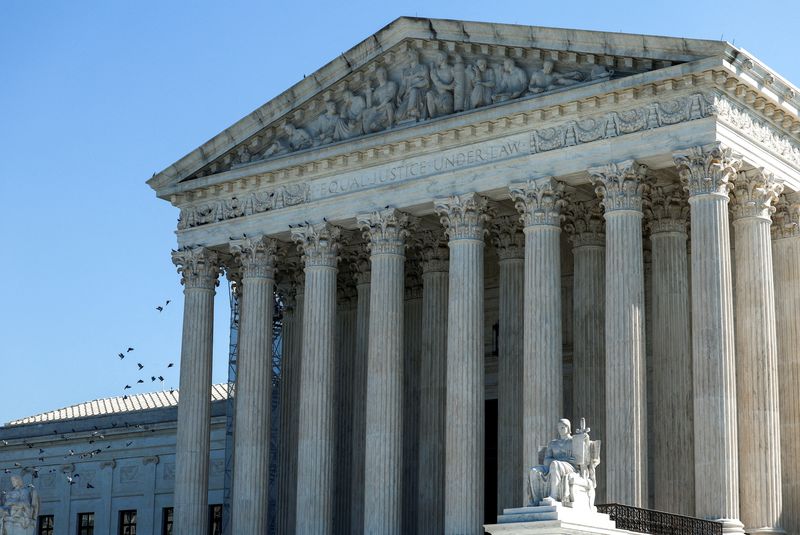By John Kruzel
WASHINGTON (Reuters) - U.S. Supreme Court justices on Monday appeared divided over whether the federal government can be sued over errors related to consumer credit reports as they considered a case involving a Pennsylvania man who accused an Agriculture Department agency of making mistakes that hurt his credit status.
The justices heard arguments in an appeal by President Joe Biden's administration of a lower court's ruling that a legal doctrine called sovereign immunity does not shield the U.S. government from liability in lawsuits concerning credit reporting inaccuracies.
The administration is seeking to block plaintiff Reginald Kirtz's lawsuit against the Rural Housing Service, an agency that furnishes loans to help lower-income Americans get housing in rural regions. Kirtz brought the suit seeking monetary damages under the Fair Credit Reporting Act, a 1970 law intended to ensure fair and accurate credit reporting.
Questions posed by the justices indicated they were split over the matter.
Kirtz has said his loans were repaid in full, but that the government lender and a separate private lender continued to wrongly report that his accounts were past due even after he complained about the discrepancies. These false reports were then passed along to the credit reporting agency TransUnion (NYSE:TRU) and damaged Kirtz's creditworthiness, according to Kirtz.
Biden's administration argued that the suit should be dismissed under the doctrine of sovereign immunity, which generally shields the U.S. government from liability except in instances in which it has been waived by law. At issue is whether Congress waived sovereign immunity in the Fair Credit Reporting Act.
The original 1970 version of the law allowed credit bureaus to be sued over inaccuracies but not the government. Congress in 1996 expanded the law to permit lawsuits against "persons" that give credit information to credit reporting agencies.
Nandan Joshi, Kirtz's lawyer, on Monday urged the justices to find that "persons" includes government agencies, noting that the law defines persons as: "any individual, partnership, corporation, trust, estate, cooperative, association, government or governmental subdivision or agency, or other entity."
Liberal Justice Elena Kagan suggested the case could be resolved in Kirtz's favor by applying "statutory interpretation 101."
"The necessary logical implication of what Congress has done is authorize a suit against people, persons, as defined in the definition section," Kagan said. "Then you go to the definition section, and then you discover that what Congress has done is authorize a suit against natural persons, enterprises and governments."
Other justices suggested that a waiver of the government's sovereign immunity must be spelled out more explicitly by Congress, with some appearing skeptical that lawmakers had intended to take that step.
"You said at the beginning ... that Congress knew what it was doing when it amended the act, but I don't think it realized that it was imposing this liability," conservative Justice Brett Kavanaugh told Joshi.
Kavanaugh noted that an analysis done at the time by the Congressional Budget Office - a non-partisan agency that forecasts the cost of legislation - did not contain an estimate of litigation costs that would follow if sovereign immunity were waived.

The Fair Credit Reporting Act requires such "persons" governed by the law to investigate disputes about the accuracy of credit information given to reporting agencies. According to Kirtz's lawsuit, the Agriculture Department failed to investigate his dispute about the accuracy of credit information its agency gave to credit bureaus.
A federal judge in Pennsylvania in 2021 granted the Biden administration's request to dismiss the case, ruling that the law "does not contain such an unambiguous waiver of sovereign immunity." The Philadelphia-based 3rd U.S. Circuit Court of Appeals last year reversed that decision.